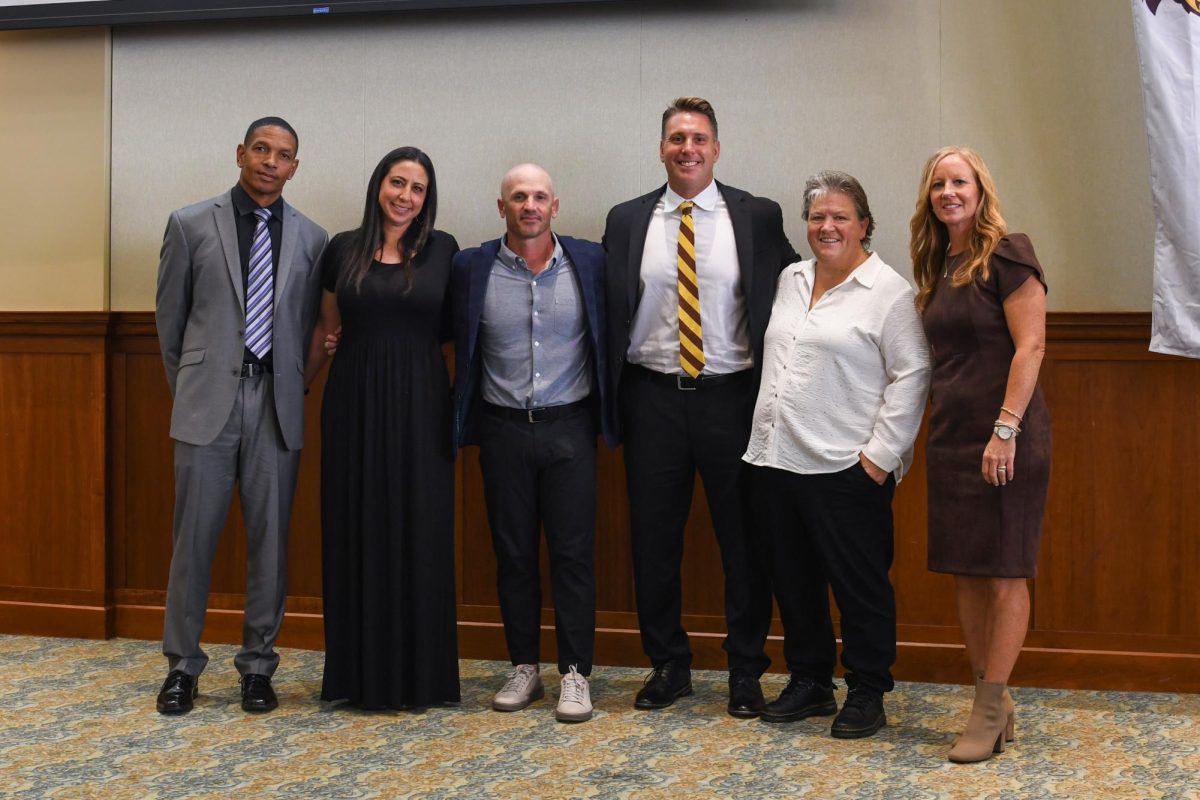Kevin Hines is a survivor.
Hines came to Rowan University on Feb. 24 to spread his unique story of strength and perseverance. Hines began by telling those in attendance to stand and take a moment of silence for those loved who were lost to suicide from an “unrelenting emotional pain.” The silence was dedicated to the memory of how they lived and the light inside of them.
Hines, one of 34 people who have survived jumping off the Golden Gate Bridge, was lucky to regain all physical movement. He allowed the audience to catch a glimpse of his headspace in that time of intense desperation.
“I believed I was useless,” Hines said. “I felt I had no value. I thought my family hated me and wanted me gone. Was any of that true? No, not by a long shot. I couldn’t see the forest through the trees. I could only see, feel, hear, touch and know pain.”
He wanted people to notice he was upset and ask what was wrong. He didn’t want to die, but rather felt he needed to.
“Are you okay, is something wrong, or can I help you was the only thing I desperately needed to hear the day I found myself standing atop the Golden Gate Bridge walkway,” Hines said. “I believed beyond a shadow of a doubt that I had not one other course of action but to die from these two hands.”
There were many chances for people to stop and ask him those questions. No one did. Hines wanted the pain to go away.
“What is the one thing you want to happen when you find yourselves in excruciating physical pain? Stop, end and go away,” Hines said. “Imagine that physical pain 300,000 times worse. That’s brain pain. The kind of pain that people around you ignore … Brain pain is some of the most severe kinds of pain you can possibly fathom. Your brain is the single most powerful organ you yield. Controlling every action and inaction you take, every decision and indecision. If your brain is malfunctioning there goes the rest of you.”
To Hines, suicide should never be an option. He knew he made the worst decision of his life when he jumped off the bridge. He wanted to live.
“I catapulted myself into freefall, but it was upon the millisecond that my hands left that rail and my legs cleared it that I had an instantaneous regret for my actions,” Hines said.
Hines was diagnosed with bipolar disorder. When he was younger, he didn’t take the medication seriously, but now he is on medication. Sometimes the medication can have bad side effects, but it helps him tackle every day.
“You’re never alone in what you’re dealing with and there’s always someone else that feels the same pain as you,” said Kayla Duraes, a senior justice major. “Never feel like you’re alone when you’re going through things because you aren’t.”
At the end of the event, Hines spoke individually with students, professors and anyone in attendance. He signed books and took his time with each person.
Sandra Joy, a sociology professor at Rowan University, was the first to contact Hines to gauge his interest in speaking at Rowan.
“I saw Kevin Hines speak in Delaware last May, and at that time I knew we needed to have him here,” Joy said. “I don’t profess that he is the answer, but he’s certainly a way for us to start more conversations and to get more structural changes.”
Hines fights every day with his condition.
“Pain is inevitable. It’s coming for all of us, but suffering is optional. Suffering is what they tell us in the clinicians office, you’re suffering from this, you’re suffering from that, you’re suffering from bipolar disorder. No. I’m thriving in spite of it. It’s a choice. I didn’t know that back then. I didn’t know my thoughts didn’t have to drive me to my actions.”
‘Be Here Tomorrow.’
For comments/questions about this story, email [email protected] or tweet @TheWhitOnline.



































































































































































































